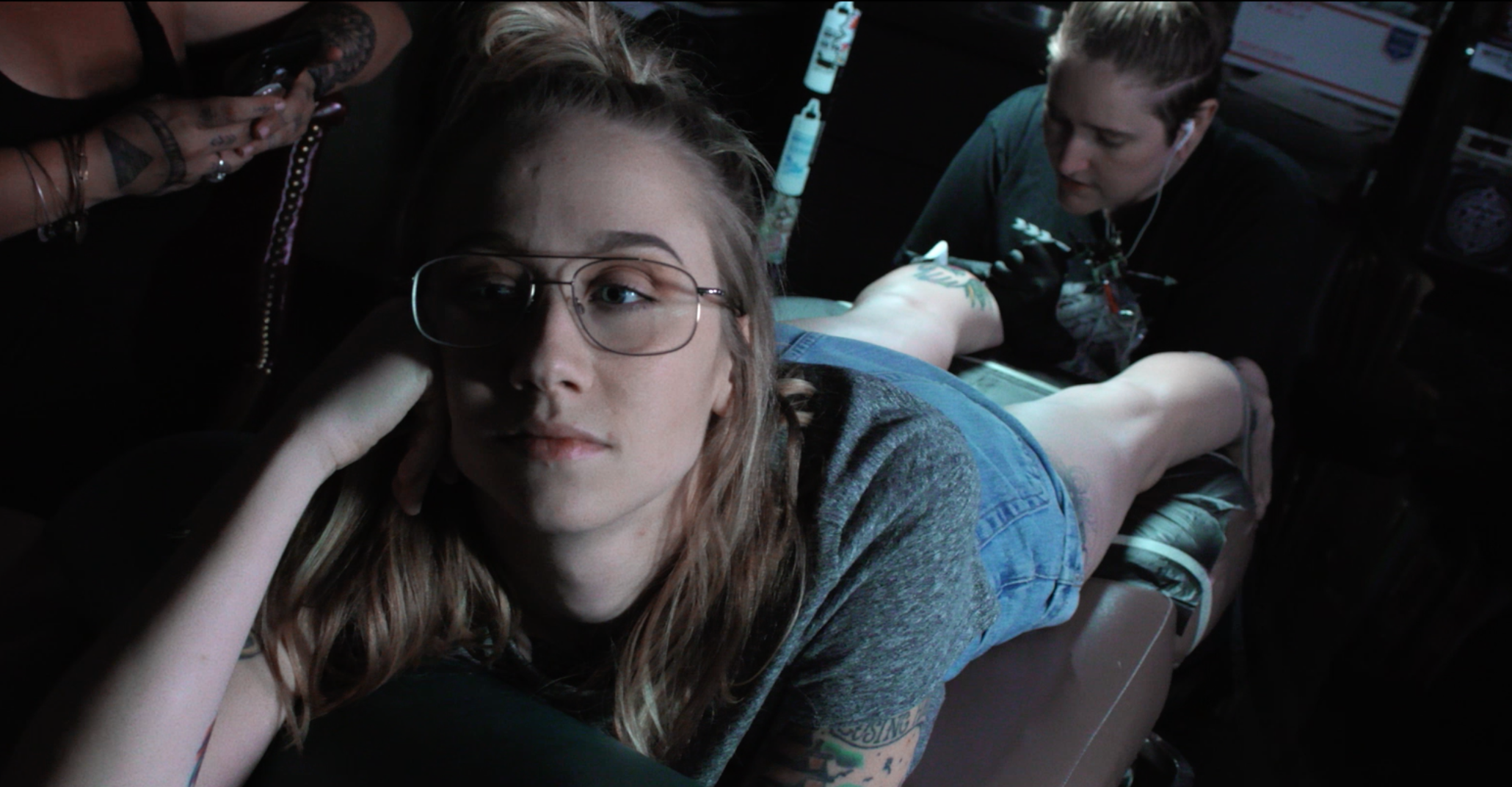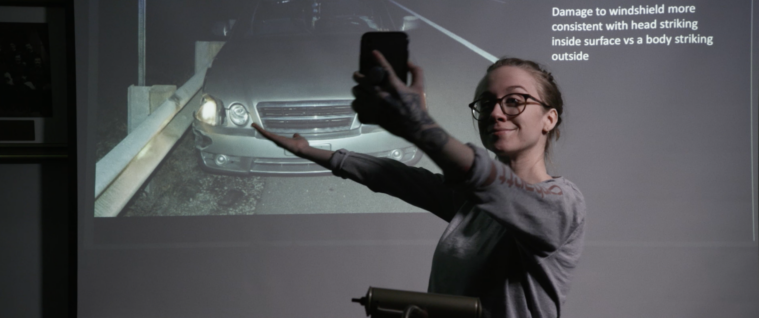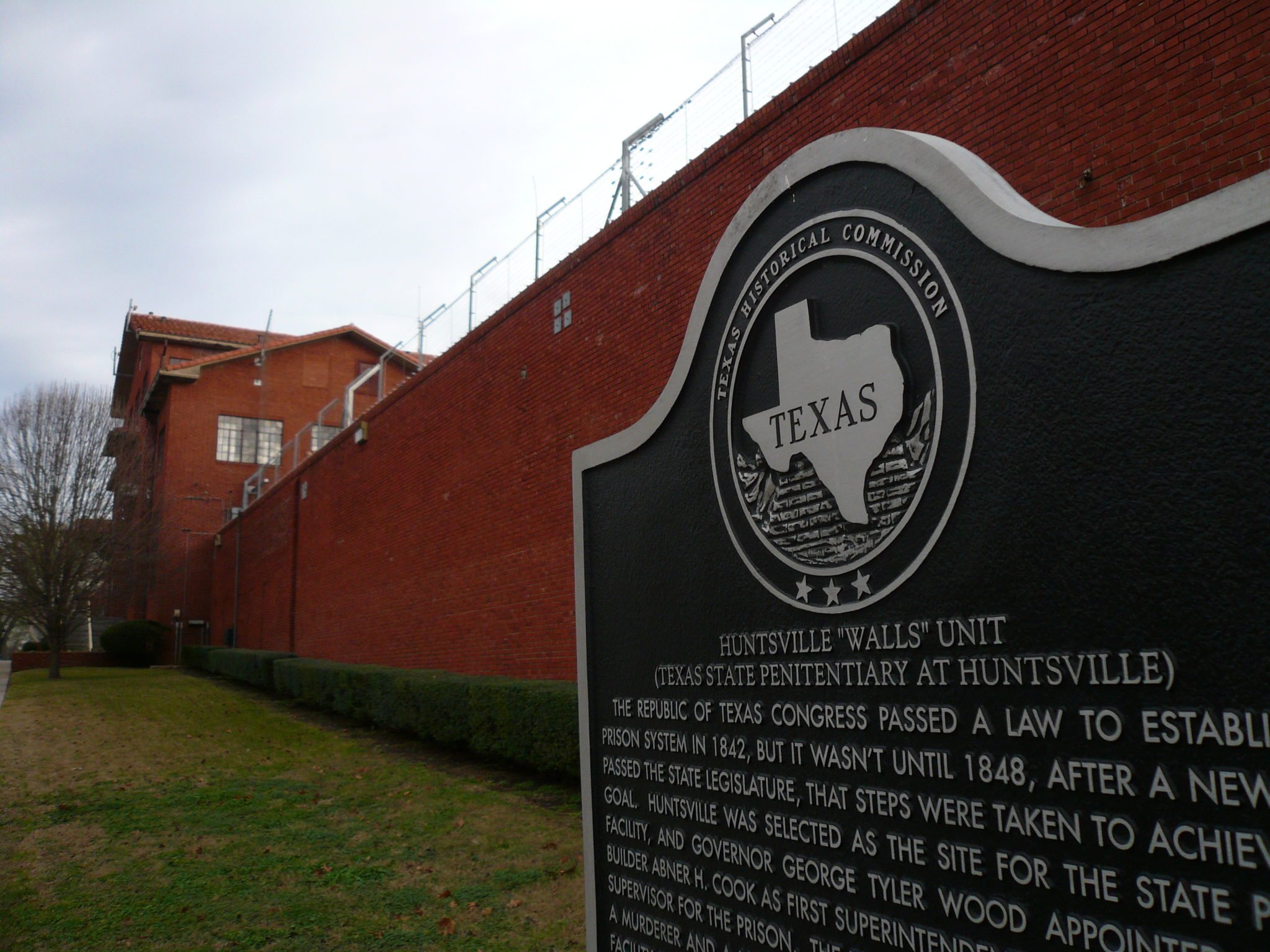
True Crime’s Ethical Dilemma
What begins as a search for a murder ends as a hard look at the murky ethics of "nonfiction" crime storytelling.

This is part of our coverage of South by South West (SXSW) 2023.
In an early scene of Chris Kasick’s new documentary Citizen Sleuth, the film’s protagonist Emily Nestor visits a local tattoo parlor. She’s getting one of those punk-style mom tattoos, a big red heart inked into her right calf, but instead of “mom,” the tattoo spells out “true crime” in black script letters. Near the end, we see the tattoo again, but this time we’re in a doctor’s office, watching her wince as it is slowly removed.
The visual metaphor matches one of the film’s larger themes: certainty doesn’t last.
In intervening chapters we meet Nestor, the voice behind the true crime podcast Mile Marker 181. The program investigates the death of Jaleayah Davis, a West Virginia woman who died under mysterious circumstances in 2011 after being hit by a car on the side of the highway. Nestor’s podcast, launched in 2019, sought to reopen the case—aiming to find new evidence that could shed light on the many outstanding questions surrounding Davis’s death.

The film’s first act presents itself in the style of mystery: our citizen sleuth submits public record requests, interviews local officials, and even conducts her own forensic experiments, driving repeatedly to the scene of the “crime”—often at night, often in the rain. But that familiar form begins to fade as we see Nestor, who has been widely promoting the theory that Davis was murdered, start to have her doubts. She hasn’t unearthed any new revelations and she’s beginning to come around to the possibility that Davis’ tragic death may have instead been accidental.
“It’s hard to prove a murder when there wasn’t one,” says Nestor.
From there, the film follows Nestor’s ethical dilemma: Her podcast is gaining popularity and earning sponsorships, but she’s becoming less and less sure of the theory she’s peddling.
“I really had these high hopes to be like Nancy Grace,” she says at one point, but now, “I’m now trying to put out content about something I don’t believe.”
In the remaining half, the film transforms from a whodunit to an engaged and complex exploration of the ethics, not just of true crime but of storytelling more broadly.
As Nestor continues to produce the podcast, we see her struggle mightily with her own behavior. Davis’ family accuses her of exploiting the tragedy for personal gain. Meanwhile, although Nestor herself no longer believes Davis’ death was a homicide, she continues to publicly promote the idea that it was a murder. “I’m not sure I’m a good person anymore,” she reports.
It’s hard not to feel that the film itself, though critical, is complicit in Nestor’s dubious ethics. To his credit, director Chris Kasick doesn’t let himself off the hook. We see him in frame, riding along with Nestor and pushing her to emote in real time, hear his voice calling out instructions as an assistant stages a shot. Just like Nestor, he’s telling someone else’s story—happy to add embellishments or push the story in a certain direction in order to build a narrative that is entertaining, if not entirely “true.”
Citizen Sleuth transforms from a whodunit to an engaged and complex exploration of the ethics, not just of true crime but of storytelling more broadly.
It’s a film that feels productively self-conscious. The filmmaker includes his subject’s concerns over their representation; weary of the disparaging tropes of Appalachia, they implore him not to present them as hillbillies. Also admirable is Kasick’s sensitivity towards how class and opportunity in a small town West Virginia complicate Nestor’s own complicity. Before her podcast gained traction, Nestor was waiting tables at a local bar. The success from her podcast allowed her to support herself independently.
Still, for all its self-awareness, the film ultimately succumbs to some of the same shortcomings of the genre it aims to critique. True crime has long been criticized for its normalization of violence. Hosts spell out graphic details of someone’s death as a means of passive entertainment. And while true crime programs dive deep into the details of the victims’ deaths, they are often sparse on the details of their lives. In Citizen Sleuth, hardly any time is spent honoring and mourning the loss of Jaleayah Davis. In the end, it’s not her story that is important to this film, it’s Nestor’s experience of it.
As the film reaches its conclusion, Nestor has decided to end her investigation and the podcast. We see her release one final episode, explaining to her audience that she now believes Davis’ death was an accident.
“I knew I was capable of telling the truth,” Nestor tells us at the start of the film. By the end of her journey, we see this confirmed—not because she uncovered some hidden fact but because she’s finally honest about her doubts.



